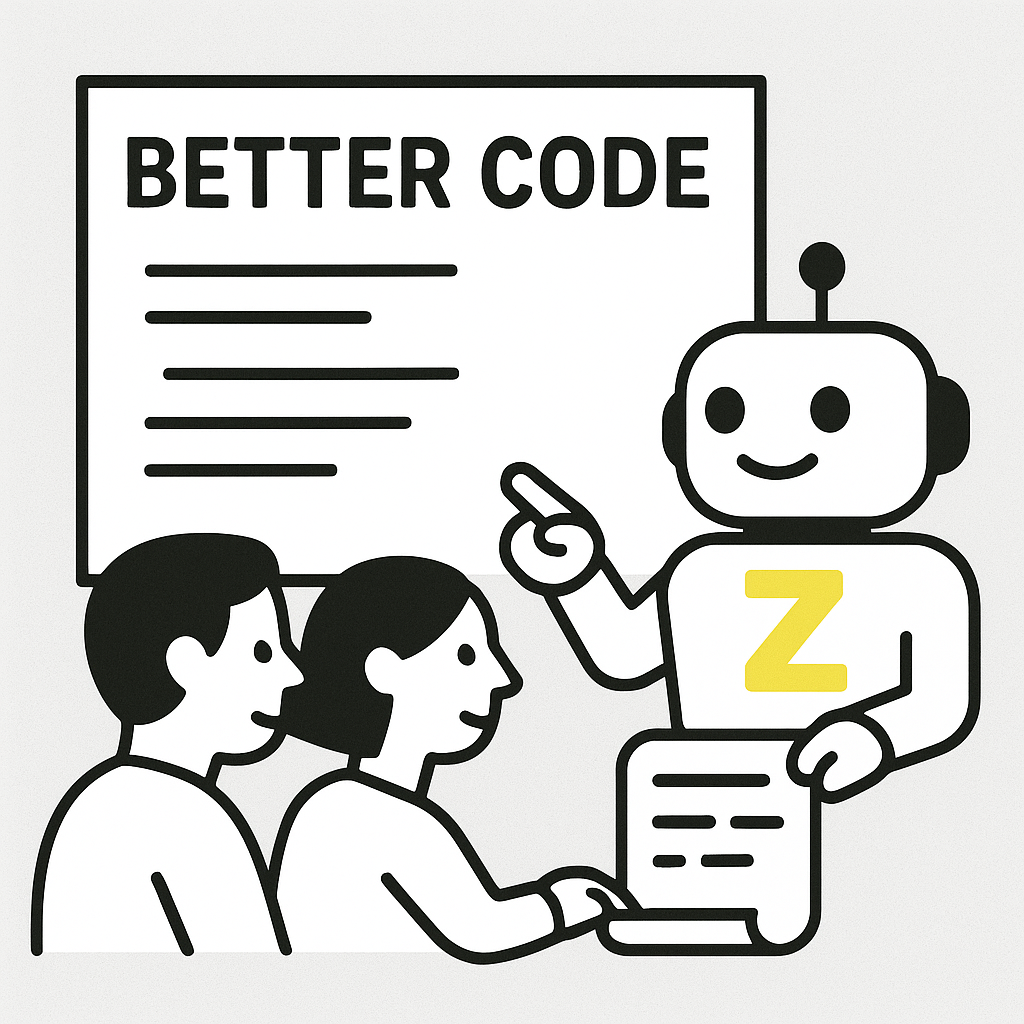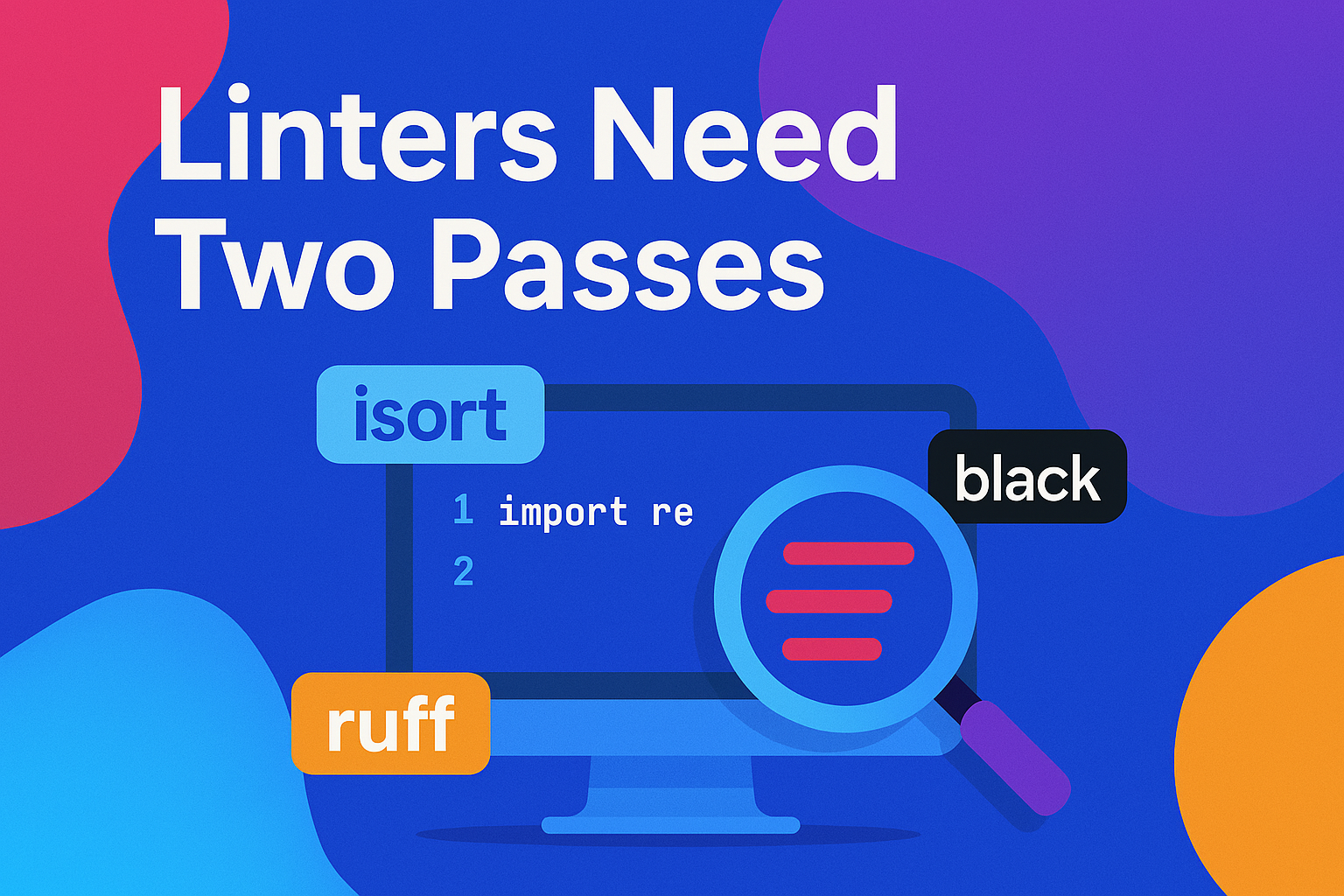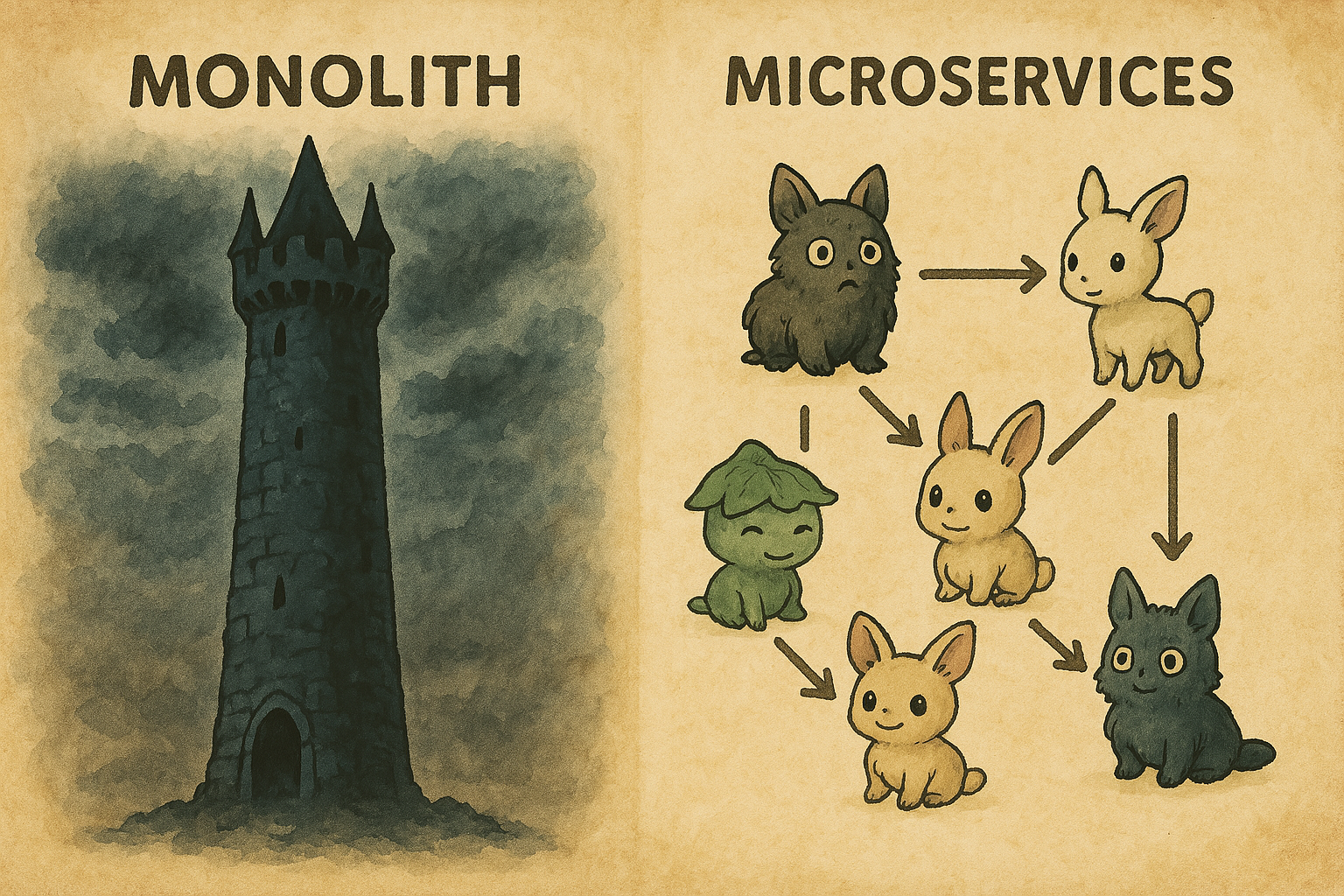
The Hidden Costs of Technical Debt: A Data-Driven Analysis
Technical debt: the accumulated shortcuts, quick fixes, and compromises that become the silent killer of software projects. Let’s dive deep into the concrete, measurable costs of tech debt, for a data-driven examination of one of the most expensive problems in software development.

From Zero to Production: A Complete Python Setup Guide
You've got a brilliant Python project idea. You create a file called main.py, and start coding. Fast forward six months: your script has grown into multiple files, dependencies, and contributors. Now you're drowning in errors and deployment headaches. Most Python projects start this way, but they don't have to. By setting a strong foundation, you save headaches and plan for project success.

Hands-On CI: Building Your First GitHub Actions Workflow
We have previously talked about why Continuous Integration is a powerful DevOps concept for helping your team develop high-quality code faster. Today we are taking you through a deep-dive into the “how,” with step-by-step instructions for setting up a linting pipeline in GitHub Actions. We’ll explain how and why CI workflows can take your team to the next level!

DevOps Approaches for SOC 2 Success
In today's software world, demonstrating your commitment to security and reliability is paramount. SOC 2 is a widely recognized auditing standard that helps organizations do just that. While preparing for an audit can seem daunting, embracing DevOps principles and tools with Zumbro can help prepare you and your team for SOC 2 success.

Legacy Code: Defuse the Time Bomb
Legacy code that doesn’t measure up to your linting or formatting standards can lie dormant for months and then explode into a crisis. Tackling these hidden hazards isn’t just a nice-to-have, it’s essential for keeping your software delivery engine humming. In this post we’ll walk through the ways that outdated legacy code can bring your team to a halt, and show you how Zumbro, our GitHub App, offers a fast and straightforward way to get control of your legacy mess.

How Zumbro Helps Your Software Team
The Zumbro App for GitHub helps you define, apply, and enforce engineering standards right in your workflow, without adding overhead. Below are three situations where teams hit the same roadblocks, and how Zumbro can help you ship better code faster.

Introducing Zumbro: Slash Tech Debt with Automated Code Fixes
Say Hello to Zumbro, our GitHub app. Zumbro is the DevOps automation tool that helps your team define, apply, and enforce engineering standards, without adding overhead. If you’re looking to improve teamwork, reduce technical debt, and accelerate shipping velocity, Zumbro gives you the foundation to do it, right inside your GitHub workflow.

The pre-commit Playbook
One of the core ideas behind DevOps is "shifting left." That means moving critical checks, testing, and feedback earlier in the software development lifecycle. Pre-Commit takes that "shift left" principle and gives it teeth. By running automated checks before code gets committed, it helps teams enforce consistency, spot bugs early, and maintain high standards. Check it out:

A Surprising Secret About Python Linters
It sounds crazy: you run your linter, fix the issues, run it again… and suddenly it finds more issues. Wait, what?
Yes, it’s a real thing. Depending on the complexity of your code and the tools you’re using, sometimes one pass isn’t enough to get a clean bill of health. But don’t worry, there’s a simple fix: run your linters twice!

Teach Your AI Agent to Write Python Logs Like a Pro
Last week we made the case for why logging is the DevOps superpower that gives you X-ray vision into your systems. What if you are using AI Agents to write your Python code? Just like we train junior developers to build habits that lead to better software, we need to guide our AI Agents to log their code in smart, structured, and consistent ways.

How to Keep Your Python Code Standard
If you've opened a Python file only to find cryptic code, you already know why “standard Python” matters. But what is standard Python? Who decides what counts as “standard”? And how can you set and enforce engineering standards for your team around standard Python? Let’s talk standards, and why they can help you and your team.

Why Your Team Needs pre-commit
It’s easy to overlook pre-commit when you’re already using GitHub and have a continuous integration pipeline. Why add complexity? In fact, when used well, pre-commit can be the simplest and most effective way to eliminate bugs, style issues, and config drift before they even enter your Git history. pre-commit helps shift quality left, right into your fingertips as you write and commit code.

Why Linters Hate Unused Imports
If you’ve been writing Python code for long, you’ve run into one of the many tools that want to clean up your files. And you’ve probably noticed that they all want to delete unused imports. This might seem a little nitpicky, but there are good reasons to nuke unused imports. And while it starts with clean code, the reasons don’t end there.

X-Ray Vision: Logging in Python
When you implement Python logging in a systematic way, it’s like having X-ray vision into your application. You’ll see exactly what’s going on and gain the power to spot issues before they become showstoppers. Let’s dive in.

The Elephant in the Room: Dealing with Legacy Code
It’s easy to think of legacy code as something ancient and untouchable, written by long-gone developers in a forgotten dialect of JavaScript. But the truth is more complicated. Legacy code is just code that’s still running your systems, even though it no longer meets your team's standards. So what do you do with it?

The Goldilocks Pull Request
A Pull Request should be focused. It should do one thing well: fix a bug, add a feature, or refactor a specific part of the code. This helps reviewers follow what changed and why, help CI tools test your changes, and help your future self understand the changes. Your PR should appeal to Goldilocks: not too large, and not too small.

How Code Reviews Should Work
The best code reviews feel like collaboration, not judgment. They’re an opportunity to ask questions, learn, and improve as a team. When the small stuff is already taken care of, there’s space for that conversation to happen. Caparra is building tools to make this easier for your team.

Python Linter Showdown
Python Linter Showdown! It’s time for a spirited comparison of four popular Python linters: black, flake8, pylint, and ruff. Each tool promises to tidy up your code, catch pesky bugs, and keep your scripts neat. Our contestants today will face off on three files containing some not-so-great Python. Get ready to witness our code-based house of horror!

Microservices and DevOps: A Perfect Match
If you're a developer exploring ways to improve your codebase and simplify your life, you've likely heard the term "microservices." It's one of those buzzwords you might nod along with but never get around to exploring in depth. Let’s take a closer look at what microservice architecture really means, why it's valuable, and how to get started without getting overwhelmed.

Clean Commits from the Start with pre-commit
Have you ever run git commit, only to realize later that you forgot to fix a small error? If so, you know that tiny missteps can quickly add up to big hassles for your entire team. That is why a simple tool called pre-commit can be so helpful. It automatically runs checks, linters, and other automated routines right before you commit your code.